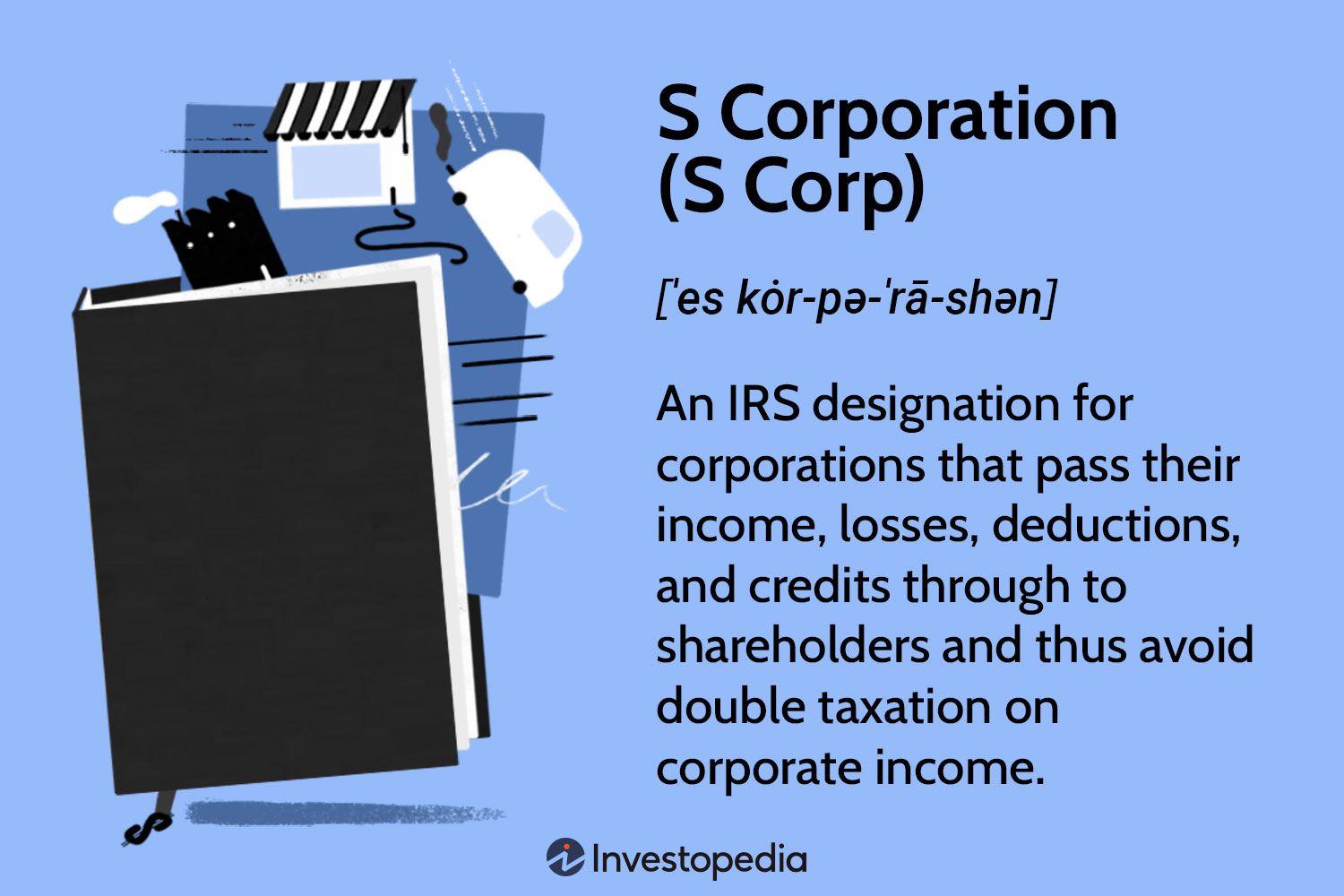Benefits of S Corp
When it comes to structuring your business, there are several options available, and one of the most popular choices is the S Corporation, commonly known as an S Corp. In this article, we will explore the numerous benefits that come with choosing an S Corp as the legal structure for your business.
Tax Advantages
One of the primary benefits of an S Corp is the potential for tax savings. Unlike a traditional C Corporation, an S Corp is not subject to double taxation. This means that the business itself does not pay federal income taxes. Instead, the profits and losses of the S Corp are “passed through” to the shareholders, who report them on their tax returns. This pass-through taxation can result in significant tax savings for the shareholders.
Additionally, S Corps can offer certain deductions and benefits that are not available to other business structures. For example, S Corp shareholders who are actively involved in the business can receive a reasonable salary, which is subject to payroll taxes, and then receive additional profits as distributions, which are not subject to these taxes. This combination can result in potential tax savings.
Limited Liability Protection
Another advantage of an S Corp is the limited liability protection it provides to its shareholders. By forming an S Corp, the shareholder’s assets are shielded from the company’s debts and liabilities. This means that if the business faces legal issues or financial troubles, the shareholders’ assets, such as their homes or personal savings, are generally protected.
Flexibility in Ownership
An S Corp offers flexibility in terms of ownership. Unlike other business structures, an S Corp can have up to 100 shareholders, and these can include individuals, trusts, and certain tax-exempt organizations. This flexibility allows for easy transfer of ownership interests and provides opportunities for growth and expansion.
Employee Benefits
An S Corp can provide various employee benefits, including health insurance, retirement plans, and stock options. These benefits can help attract and retain talented employees, fostering a positive work environment and enhancing the overall success of the business.

Choosing an S Corp as the legal structure for your business can offer numerous benefits, including potential tax savings, limited liability protection, flexibility in ownership, and the ability to provide attractive employee benefits. It is important to consult with a legal and tax professional to determine if an S Corp is the right choice for your specific business needs.
Frequently Asked Questions about the Benefits of S Corporation
1. What is an S Corporation?
An S Corporation is a special type of corporation that provides certain tax benefits to its shareholders. It is a business entity that elects to pass corporate income, losses, deductions, and credits through to its shareholders for federal tax purposes.
2. What are the main benefits of forming an S Corporation?
The main benefits of forming an S Corporation include limited liability protection for shareholders, pass-through taxation, and potential tax savings.
3. Can anyone form an S Corporation?
No, not everyone can form an S Corporation. There are certain eligibility requirements, such as having no more than 100 shareholders, all of whom must be U.S. citizens or residents, and only one class of stock is allowed.
4. How does pass-through taxation work for an S Corporation?
Pass-through taxation means that the income, losses, deductions, and credits of the S Corporation “pass-through” to the shareholders’ tax returns. The S Corporation itself does not pay federal income taxes.
5. Are there any limitations on the types of businesses that can be S Corporations?
Yes, certain businesses cannot be S Corporations, such as financial institutions, insurance companies, and domestic international sales corporations (DISCs).
6. Can an S Corporation have foreign shareholders?
No, an S Corporation cannot have foreign shareholders. All shareholders must be U.S. citizens or residents.
7. Can an S Corporation issue different classes of stock?
No, an S Corporation can only have one class of stock. This means that all shareholders must have the same rights and privileges.
8. Are there any limitations on the number of shareholders in an S Corporation?
Yes, an S Corporation can have no more than 100 shareholders.
9. Can an S Corporation convert to another type of entity?
Yes, an S Corporation can convert to a regular C Corporation or another type of entity if it meets the requirements and follows the proper procedures.
10. What happens if an S Corporation loses its eligibility?
If an S Corporation loses its eligibility, it will be treated as a regular C Corporation for tax purposes. The corporation and its shareholders will face different tax rules and obligations.




